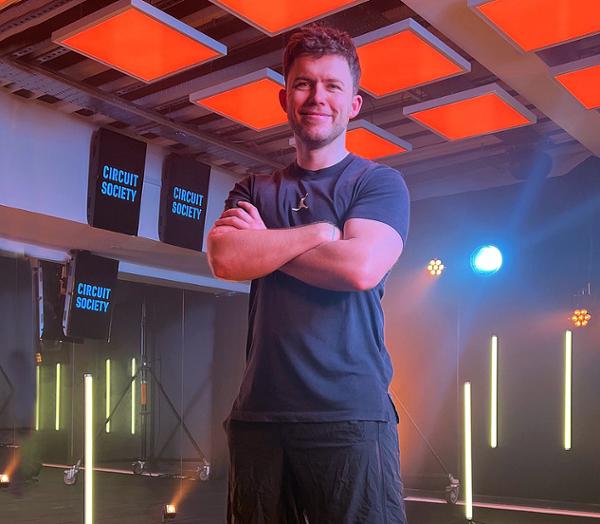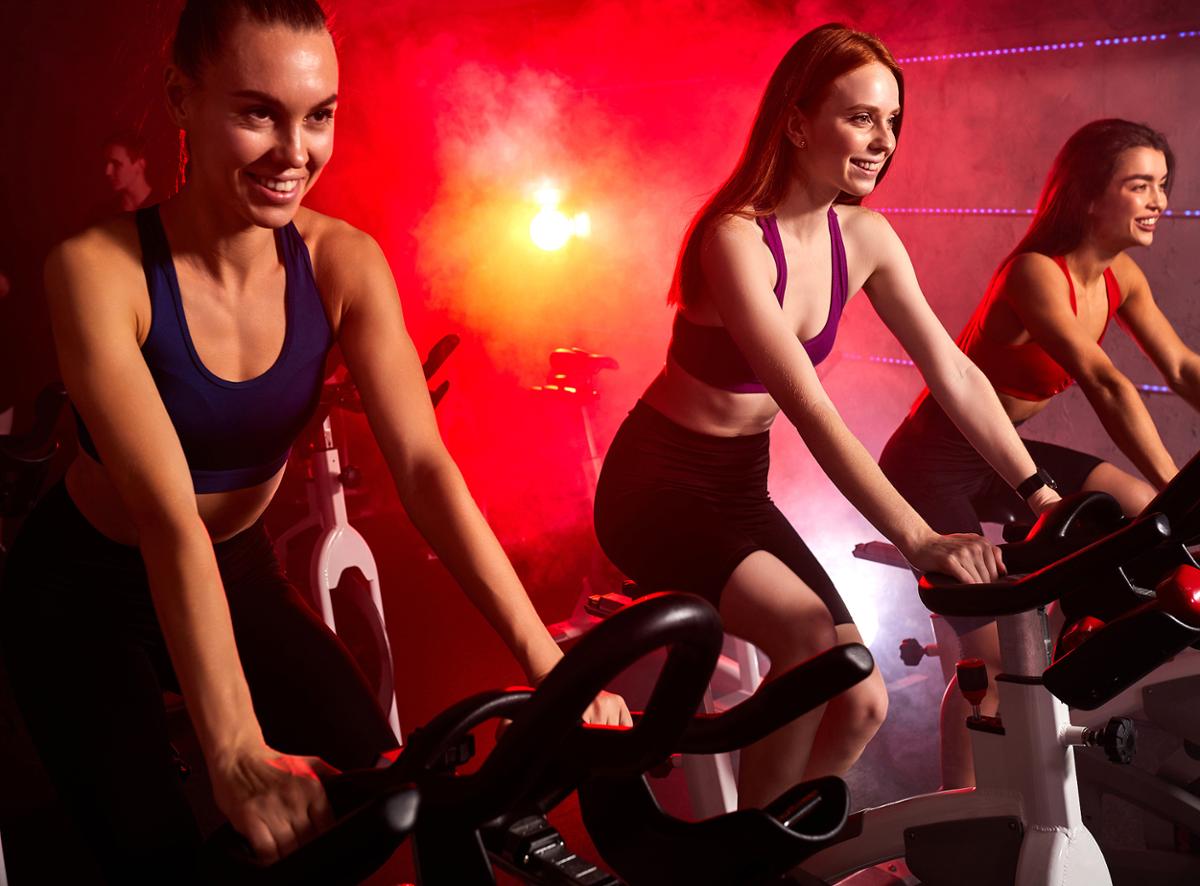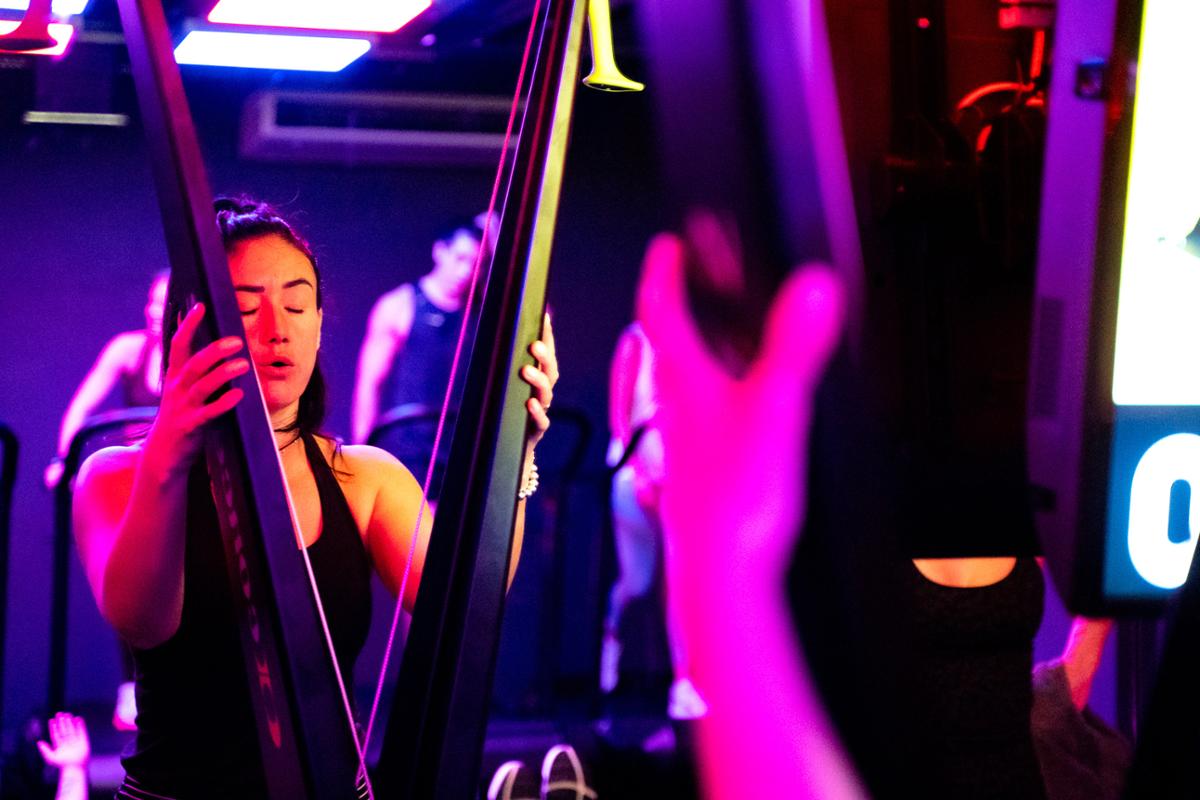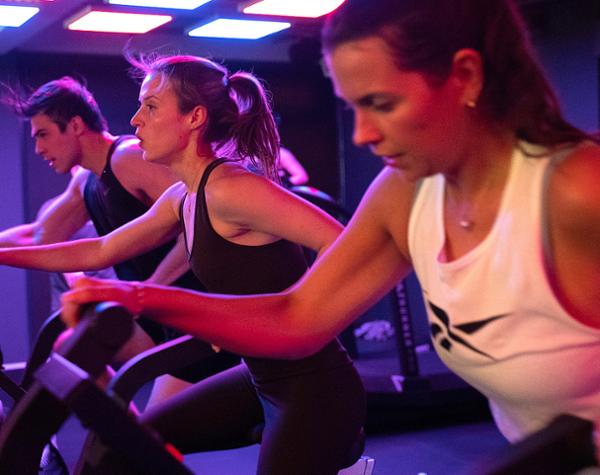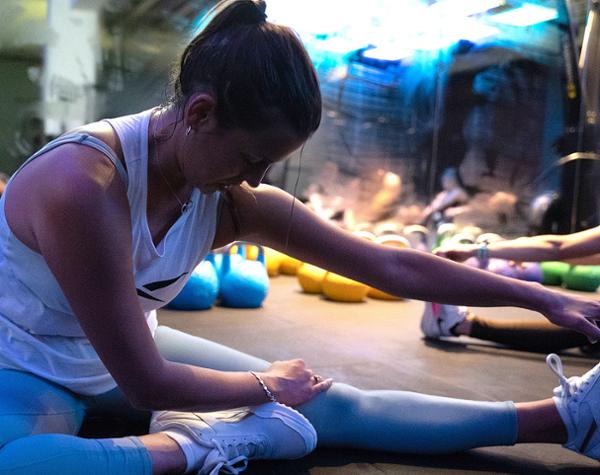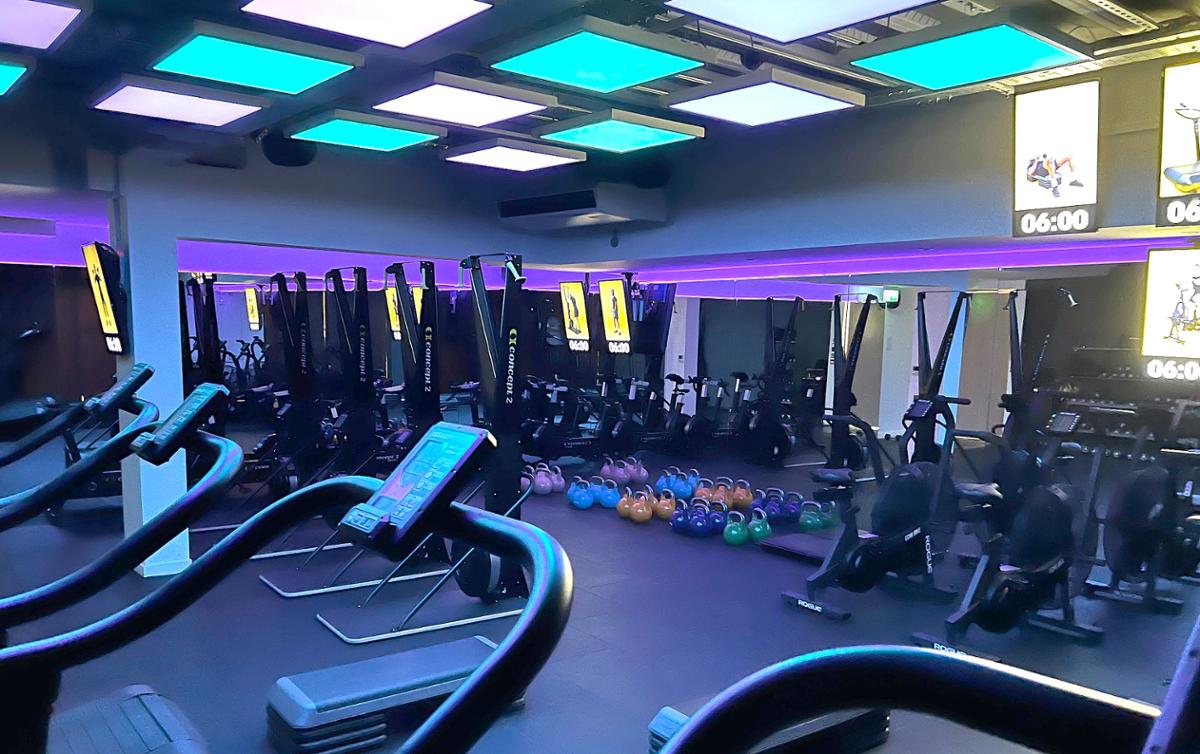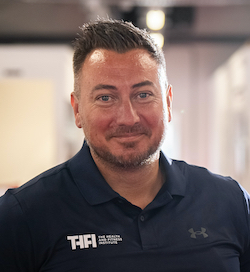How did it all start?
I was on a path towards top-tier athletic coaching when Barry Jay [founder of Barry’s Bootcamp]changed my entire approach to fitness and my career. I’d begun working with top class athletes and my goal was to go deeper into elite coaching, but my time with Barry changed everything.
I took my first Barry’s class in 2010 and was instantly hooked. At the time, the boutique fitness market didn’t really exist outside of the US and was tightly confined to LA and New York, and the concept drew me in.
Running was my sport, and I instantly saw what Barry was doing – making running accessible and fun. The people going to Barry’s class weren’t runners, in fact they probably wouldn’t ever run if Barry’s didn’t exist.
How did that experience influence your career?
I was a co-founder of boutique studio Kobox and we did the same thing – took the sport of boxing to a group of people who were too scared to try it until we made it fun, safe and accessible.
Now I’m doing the same thing with the launch of micro studio franchise concept, Circuit Society.
Tell us about Circuit Society
We think that there’s space for a market leader in offering smaller, neighbourhood-based, micro-studios across the world. We want to be that leader.
Our circuit classes are pretty intense, they’re tough, but we’re always searching for ways to bring truly effective classes to people in the most accessible and fun way possible.
It’s easy for any studio to deliver a really tough workout, but it’s a real skill to do it in a way that makes people feel as though they belong to something, and more importantly, in a way that makes it truly enjoyable.
Your goal is to give people the ‘best hour of their day’
It’s our north star as a business. The workout is important, but so is having somebody know your name, remember your favourite protein shake, or allocate you your favourite spot in class without you having to ask.
All successful boutique studios are part gym, part social club. If people choose to spend any of their scarce free time with us, we want to deliver on all fronts.
What’s the vibe?
It’s like a mini-nightclub. We have dark lighting to help make people comfortable and a sound system that allows customers to immerse themselves in the experience.
We’re not into screaming and shouting at people, we find that the best energy comes from the clients themselves, putting a group of people together and using lights and music to encourage them usually brings out the best in people. The energy is infectious, and it often changes everyone in the room.
What are the biggest barriers to people using boutiques?
Fear is always the biggest barrier, it doesn’t matter what the concept is. Fear that the class will be too difficult, that they may not be fit enough. Mostly they’re irrational fears.
We try to combat those fears by making classes as fun as possible. The lighting system allows people to get lost in the room and let go of any inhibitions they may have and the music helps with that too.
How many are now open?
In the UK, our Camden studio is open, with Bayswater and St Albans due to open in Summer. The first studio is approximately 800sq ft and can accommodate 24 people.
When will you go global?
We’ve just signed a master franchise agreement for Dubai, and have had incredible interest from potential franchisees in relation to studios in Dubai. It’s a great location for us to open.
London to Dubai is the busiest flight route in the world at the moment, and that gives us the ability to grow in the region and use some of our brand awareness in the UK to aid that growth. There’s further interest from other regions within the UAE and the rest of the Middle East and having a master franchisee with overall responsibility for the region allows us to do better deals than managing that process from the UK.
What is Circuit Society’s USP as a franchise?
Our concept is very simple. That makes it effective as a workout and it also makes it flexible and scalable from a potential franchisee’s perspective.
Most other fitness franchise businesses have a very fixed model in terms of property requirements and studio size. That rules a lot of people out of the market, as it simply isn’t accessible to them. We have six stations, so in theory we can open studios in any multiple of six that suits the location and the potential franchisee.
We’re in discussion with potential franchisees for sites as small as 12-person capacity, all the way up to 42-person capacity. We really can bring this concept to every town and village in the UK and beyond, and allow people to become business owners.
Why micro-studios?
It’s a reaction to what we believe the market wants. The world has changed since the start of the pandemic. We’re much more neighbourhood-oriented.
London has always been a city in transit, but now, with the work-from-home changes, it’s less so. We believe people want to spend less time commuting for work – or any other activity for that matter – and convenience is key, so we want to bring them what they want, close to home. I think that outside London, the UK is still really underserved when it comes to quality fitness concepts.
Investing £1m in a 60-person studios doesn’t make sense in more regional areas, but that shouldn’t mean that quality studios can’t exist. In our previous business, the cost of providing the standard of studio required was a big hurdle. Sites of £1m are a big risk, but this model is cheaper and much more accessible for potential franchisees.
Why did you decide to franchise?
The fitness industry is a people industry. I think what makes fitness studios unique and different is the personal touch – knowing the people who run the business and forging strong relationships. The curse of growth is that you start to lose that.
With a franchise model, we can scale the business by enabling other people to become owners, and maintain that personal touch. It will mean more to those who own the business, rather than being employees of a bigger corporate machine. It’s a win for the customer, and that’s the most important thing.
What support do you give franchisees?
Our Bayswater franchisee is benefiting from our start-up funding model, where we provide funding to potential franchisees to help towards start-up costs and that’s repaid monthly over the first two years. We also provide HQ staff over the first two years to help operate the studio.
Is the £20 monthly member fee sustainable?
The membership model is different from other fitness studios. Typically, there are two models; pay-as-you-go, and monthly memberships.
Ours is a hybrid model. For £20, our members receive access to our on-demand digital classes, and also receive up to 40 per cent discount on pay-as-you-go class packages and 20 per cent discount on shakes, apparel and water. It’s essentially a loyalty scheme.
There’s a range of pricing – for example, single classes for members cost £18, with non-members paying £22. Members pay £180 for 30 classes, while non-members pay £300 (www.circuitsociety.fit/pages/buy).
First Kobox, now Circuit Society ... you’re a fitness entrepreneur – do you have more business ideas?
Yes, of course! We’ve also launched a health supplement business called NUA Health (www.nua.health), and we see that as being a vertical business within the whole Circuit Society ecosystem.
The NUA Health business will offer our customers supplement products that they’re able to trust to create an upsell for the operating business.
We also have plans to launch other concepts as sister brands to Circuit Society and bring all of these ideas and concepts together under a digital offering within 12 months – so there’s lots still to come.
Is there a link between you exiting Kobox and going micro with Circuit Society?
Kobox was an incredible business and I’m very proud of everything we achieved while I was involved, but scaling a business like that is difficult in the UK.
The appetite from investors when it comes to risking large amounts of capital on studios and on the branding and marketing required, just doesn’t compare with what’s possible elsewhere in the world, especially the US.
Circuit Society is more scalable – our opening and operating costs are significantly lower – and we can reach more parts of the UK due to both of those factors. From the outside they may look like very similar businesses, but they’re markedly different models.








